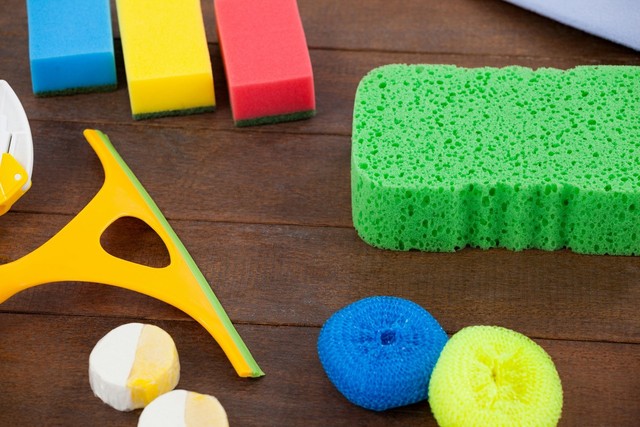May 12, 2023

We frequently use sponges around the house for cleaning, bathing, and even applying cosmetics. But a lot of us might be unaware of the rich background to these useful instruments created in sponge manufacturer. Since they evolved from a sea creature to a cleaning tool thousands of years ago, sponges have served a variety of functions.
Ancient civilizations like the Greeks and Romans, who used them for washing and cleaning, can be credited with the invention of the sponge. Due to their capacity to absorb water and keep their shape even when wet, sponges were a highly prized crop in the Mediterranean Sea. Even sponges were used as money by the ancient Greeks, who exchanged them for other products and services.
Sponge usage expanded over time to include new applications. Natural sponges were utilized for furniture cushioning and construction insulation in the 18th century. Due to their capacity to absorb liquids and preserve moisture, they were also employed in the production of surgical dressings. New techniques for collecting and processing sponges were created as the demand for them increased, resulting in the growth of the sponge business.
When synthetic sponges were first created in the late 19th century, it marked one of the most important turning points in the history of sponges. Otto Bayer, a German chemist, discovered how to make polyurethane foam, which could be used in place of natural sponges. The market for natural sponges decreased as synthetic sponges became more durable and more affordable to create. The majority of sponges on the market nowadays are constructed of synthetic materials.
Natural sponges are still used in several industries, such cosmetics and art, despite the rise of synthetic sponges. For their texture and capacity to equally hold and release liquids, natural sponges are highly prized. For cleaning aquariums and other marine equipment, they are also a well-liked option among aficionados of the ocean.
Natural sponge harvesting is a fascinating technique that calls for a high level of ability and knowledge. Sponge diving is a method used to collect natural sponges from the ocean. Divers use an equipment with a hook-like shape to swim to the ocean's bottom and manually gather sponges. The sponges are cleaned and processed after being gathered to get rid of any trash or extra materials.
Greece, in particular, has a rich and colorful history with sponge diving. Sponge diving was a significant industry in Greece in the early 20th century, employing thousands of people and bringing in millions of dollars. However, overharvesting and the advent of synthetic sponges contributed to the industry's downfall in the middle of the 20th century.
Some regions continue to rely on sponge diving as a source of income despite the loss of the natural sponge industry. Sponge diving, for instance, is still a common hobby in Florida where divers gather natural sponges from the Gulf of Mexico using age-old techniques.
Intriguing things happen to sponges in maritime habitats. Natural sponges are filter feeders, which means they take in water while removing microscopic food particles. Through this process, the ocean's water is kept pure and clean, and sponges are crucial to the wellbeing of the marine ecosystems. Additionally, certain sponge species have compounds that are being researched for their possible application in the treatment of diseases including cancer and HIV. These chemicals have therapeutic qualities.
Last but not least, the history of the sponge is an intriguing one that spans thousands of years and includes a wide variety of functions and applications. Sponge use has been significant throughout human history, from their early uses in bathing and cleaning to their current uses in cosmetics and painting. Natural sponges are still utilized in several businesses and are still gathered using conventional techniques, despite the advent of synthetic sponges. Along with serving as filter feeders and possible sources of therapeutic chemicals, sponges also contribute significantly to marine ecosystems. Take a moment to appreciate the lengthy and fascinating history of this simple cleaning equipment the next time you grab a sponge to clean your kitchen or take a bath.
Related articles:
Synthetic Sponges' Effect on the Environment and Possible Alternatives
The Best Sponge for Your Car Wash: How to Choose
Tips & Tricks for Cleaning Your Kitchen with a Sponge
Posted by: oioili at
08:43 AM
| No Comments
| Add Comment
Post contains 716 words, total size 5 kb.
32 queries taking 0.0553 seconds, 49 records returned.
Powered by Minx 1.1.6c-pink.









